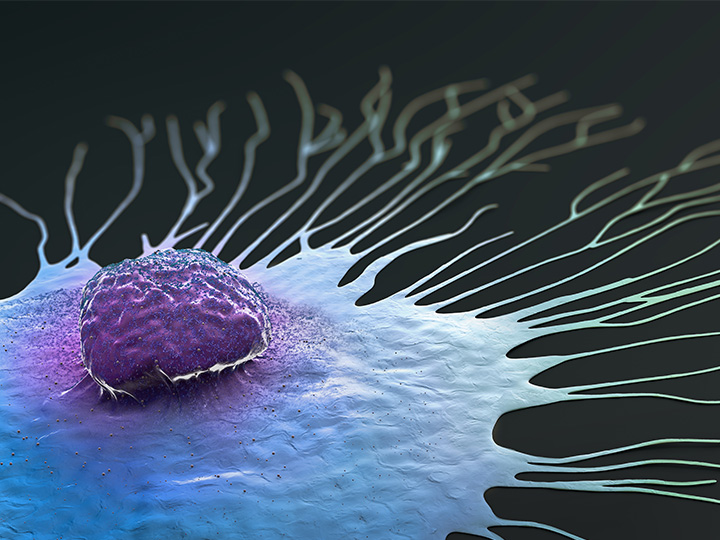A Data-Driven Approach to Optimizing Breast Cancer Treatment

On February 29, Ernesto Lima gave a hybrid Lunch and Learn presentation with the Society of HPC Professionals at the Texas Advanced Computing Center (TACC). Lima is a research associate at UT Austin’s Center for Computational Oncology.
Breast cancer affects millions worldwide. Around 15-20 percent of cases are HER2-positive breast cancers, which are tumors that promote aggressive, rapid cancer cell growth. Current HER2-positive treatments— the most notable being trastuzumab— have proven effective, often given with chemotherapies, such as doxorubicin, to increase response rates. In his study, Lima investigates one main question: how can we optimally combine these two treatments to maximize control and reduce tumor size?
To tackle this problem, Lima and his research team utilized data from a murine model of HER+ breast cancer to analyze changes in tumor volume under various trastuzumab and doxorubicin treatment protocols. Adopting a Bayesian framework, they developed and calibrated ten mathematical models that capture the experiment tumor dynamics and the direct effects of the drug-to-drug interactions. The model calibration was done through Python using a Markov chain Monte Carlo (MCMC) ensemble sampler.
After selecting the model with the highest Bayesian information criterion, they applied the optimal control theory to find two ideal treatment protocols that both deliver trastuzumab prior to doxorubicin. The first one used the same experimental doses for both drugs, predicting an additional 45% tumor burden reduction. However, to limit cardiotoxicity, Lima and his team reduced the total dose of doxorubicin to approximately 43% for the second protocol, which achieved equivalent tumor control as the experimental protocol.
Currently, Lima and his research team are performing the necessary experiments to confirm, or improve, the optimized treatment protocol.
Lima is a research associate at the Center for Computational Oncology at the Oden Institute for Computational Engineering and Sciences and a member of the Life Sciences group at the Texas Advanced Computing Center (TACC). His research focuses on the development of numerical methods, innovative tumor growth models, treatment optimization, and model selection and calibration.